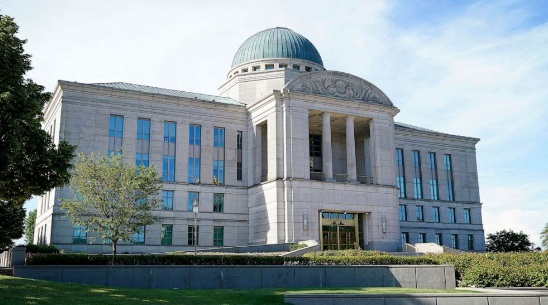Due to a tie of 3-3 in the court’s ruling, the state of Iowa still allows abortion to take place.
Several years ago, a law was passed in Iowa that restricted abortions after six weeks of pregnancy. However, the implementation of this law was blocked by the Iowa Supreme Court.
As a result of the recent split decision by the court, with a tie of 3-3, abortion remains legal in Iowa.
In 2018, Governor Kim Reynolds signed a bill into law that prohibited abortions once fetal heart activity could be detected, which typically occurs around the six-week mark of pregnancy, often before many women realize they are pregnant.
However, in January 2019, a district court invalidated the law, citing its inconsistency with the Iowa Constitution and the lack of justification for the state to prohibit abortions at such an early stage of pregnancy.
Another bill aiming to restrict abortion was challenged in the Iowa Supreme Court in 2018, where the justices affirmed that a woman’s right to decide whether to terminate a pregnancy is a basic right that the Iowa Constitution protects. This decision was referenced by Polk County District Judge Michael Huppert in his ruling.
According to the Guttmacher Institute, an organization specializing in sexual and reproductive health research, abortion is currently prohibited in Iowa after 22 weeks of pregnancy.
In Iowa, women seeking an abortion are required to attend an in-person counseling session and wait at least 24 hours before undergoing the procedure.
After the U.S. Supreme Court overturned Roe v. Wade last summer, the Iowa Supreme Court reversed its previous ruling in June 2022 and concluded that abortion is not constitutionally protected in the state.
Following the 2018 ruling, Governor Reynolds, a Republican, appointed four new judges out of the seven, thus altering the composition of the state Supreme Court.
However, the court disagreed with the notion of reinstating a legislation that had been previously overturned.
“In our view, to revive a statute that was dormant upon enactment and has been under injunction for four years is an act of legislating from the bench,” wrote Justice Thomas Waterman in the court’s decision on Friday.
“The State appealed the January 2019 decision and now asks our court to do something unprecedented in Iowa history: simultaneously bypass the legislature,” the judge continued and change the law, adopt rational basis review, and then dissolve an injunction to enforce a statute for the first time in the same case in which it was previously declared unconstitutional years earlier.”
Had the court ruled in favor of the ban, Iowa would have joined other states such as Alabama, Georgia, Kentucky, Louisiana, Missouri, North Dakota, and Texas in enacting “heartbeat bills” that restrict abortions.
Similar laws prohibiting abortions after six weeks have also been passed in South Carolina and Ohio, but they are currently facing legal challenges.
The verdict was applauded by Planned Parenthood Advocates of Iowa and other pro-abortion organizations. They posted on Twitter, “The Iowa Supreme Court has protected abortion access in Iowa by preventing a nearly complete ban on abortion from taking effect. This is a significant victory for Iowans and their right to choose. #BansOffOurBodies”
Governor Reynolds criticized the court for failing to exercise its legal powers.
She expressed her disappointment with the Iowa Supreme Court’s lack of action, stating, “To say that I am disappointed by the Iowa Supreme Court’s inaction today would be an understatement. Not only does it disregard the fact that the people of Iowa elected lawmakers who would defend the rights of unborn children, but it also supports the decision of a single judge in a single county who overturned Iowa’s laws based on ideas that the U.S. Supreme Court has unequivocally rejected. Three of the judges acknowledged today that there is no fundamental right to abortion and that any regulation should be evaluated using a rational basis test. However, without a ruling in our favor, there is no justice for the unborn.”
Since the overturning of Roe v. Wade, abortion providers in states like Iowa have been facing challenges such as staffing shortages and other obstacles, which have made it difficult for them to continue their services. The Society of Family Planning, a nonprofit organization dedicated to research on abortion and contraception, is leading a national research project called #WeCount. Exclusive data provided to FiveThirtyEight reveals that out of the remaining eight clinics in Iowa and Nebraska, four had no available appointments, In April, three patients had four- to six-week waits, one patient had an appointment booked within one to two weeks, and another patient within five.
Moreover, the data indicates that between July 2022 and March 2023, there were 24,290 fewer legal abortions compared to the pre-Dobbs baseline.









